Bobby Kennedy was shot by an assassin on June 5, 1968, and died from his wounds early the next day.
Robert F. (Bobby) Kennedy was born in Boston, Massachusetts, on November 20, 1925, though the family moved to New York two years later. Bobby was the seventh of nine children born to Joe Kennedy Sr., a businessman and leading figure in the democratic party who hoped one of his sons would grow up to be president. While he focused on preparing Bobby’s older brothers for such a feat, he encouraged the younger siblings to study current events so that they too could enter public service.
As a child, Bobby liked visiting historic sites and playing games that improved his vocabulary and math skills. He was very interested in American history, covering his walls with presidential portraits and his shelves with books on the Civil War. He was also an avid stamp collector. When he was 11, Bobby receive a letter from fellow collector President Franklin Roosevelt that read, “Your dad has told me that you are a stamp collector and I thought you might like to have these stamps to add to your collection. I am enclosing a little album which you may find useful. Perhaps sometime when you are in Washington you will come in and let me show you my collection.”

Bobby replied, “I liked the stamps you sent me very much and the little book is very useful. I am just starting my collection and it would be great fun to see yours which mother says you have had for a long time. I am going to frame your letter and I am going to keep it always in my room.” Today, these letters are in the collections of the National Archives.

Weeks before his 18th birthday, Bobby joined the US Naval Reserve and went on to attend the V-12 Navy College Training Program at Harvard. After his older brother Joe was killed in action in 1944, Bobby requested to be assigned to the ship that was named in his honor. Bobby served aboard the USS Joseph P. Kennedy Jr. for four months in the Caribbean before being honorably discharged.
Bobby went on to attend Harvard and join the varsity football team. After graduating, Bobby sailed to Europe and the Middle East and submitted stories for the Boston Post. In the following years, he passed the bar and continued to write for the Boston Post, notably covering the Treaty of Peace with Japan.
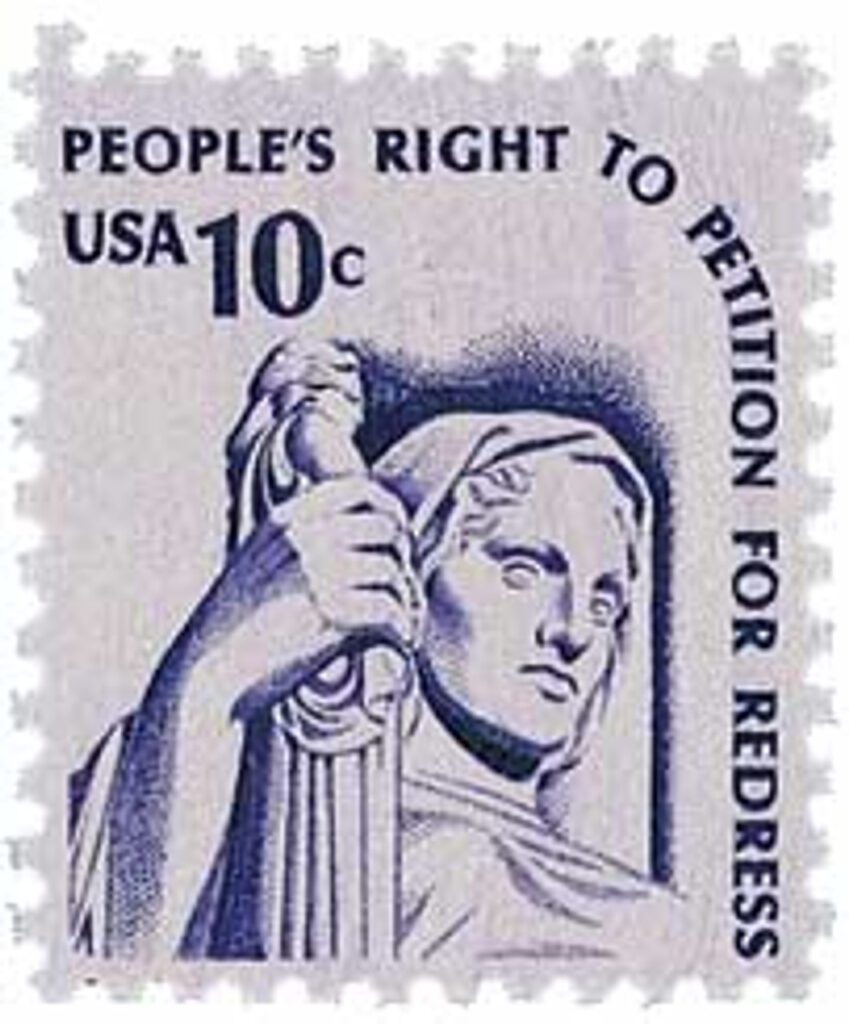
In 1951, Bobby followed his brother John’s lead and entered politics as an attorney in the US Department of Justice. In 1953, he became counsel for the Senate Permanent Subcommittee on Investigations, chaired by Senator Joseph McCarthy. Kennedy held that position for the next two years. He finished the 1950s as chief counsel to the Senate Select Committee on Improper Activities in the Labor–Management Field.

Beginning in 1959, Bobby began devoting his time to running his brother’s presidential campaign, as he had done in 1952 during John’s senatorial campaign. After John won the 1960 presidential election, Bobby was appointed attorney general and also acted as the President’s closest advisor. These roles gave Bobby considerable influence in both foreign and domestic affairs. He had greater power as attorney general than anyone else who has held that position, and used it to pursue leaders of organized crime and the mafia. During his term, convictions against these people rose 800 percent.
Bobby used his influence to push for civil rights reform. He supported the Freedom Riders and sent US marshals to enforce a federal court order to integrate the University of Mississippi.
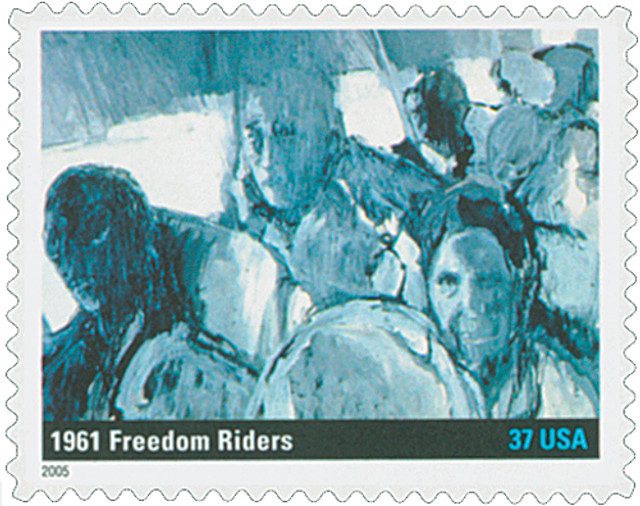
In 1965, following his term as attorney general, Bobby ran for a seat in the US Senate, representing New York State. After three years as a US Senator, sensing the vulnerability of Lyndon Johnson, Bobby decided to run for President of the United States. He was immensely popular, as people saw him as the embodiment of his slain brother.
On June 5, 1968, Kennedy was assassinated at the Ambassador Hotel in Los Angeles shortly after delivering a victory speech following his win in the California primary. As he exited through the hotel’s kitchen pantry, he was shot multiple times by Sirhan Sirhan, a 24-year-old Palestinian immigrant reportedly angered by Kennedy’s support for the formation of Israel. Kennedy died from his wounds in the early hours of June 6. He was just 43 years old. His death shocked the nation, coming just five years after the assassination of his brother, President John F. Kennedy, and marked a tragic turning point in American political history.
Click here to listen to one of Kennedy’s most famous speeches, delivered shortly after the death of Martin Luther King Jr. and just months before his own assassination.
| FREE printable This Day in History album pages Download a PDF of today’s article. Get a binder or other supplies to create your This Day in History album. |
Discover what else happened on This Day in History.


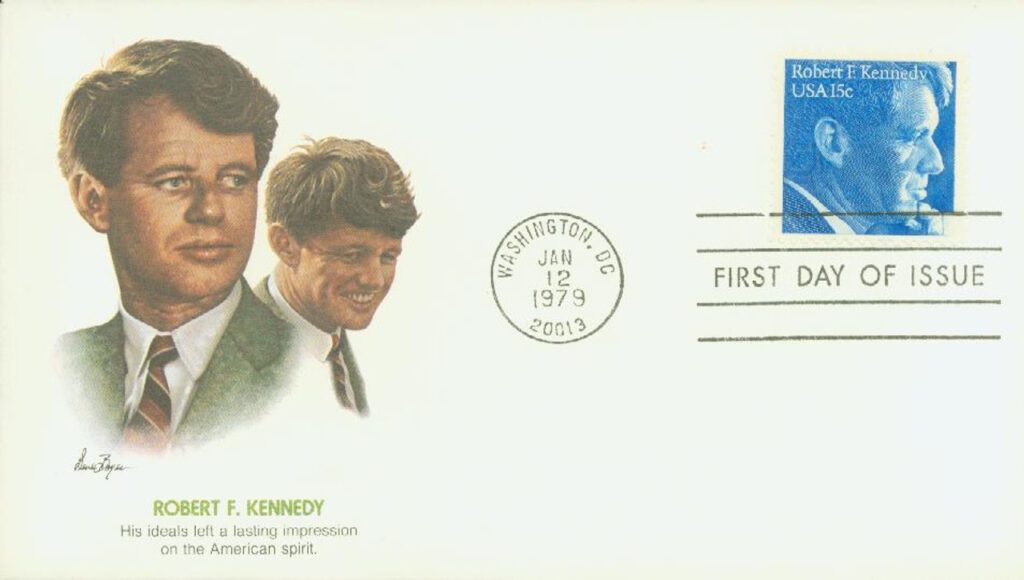
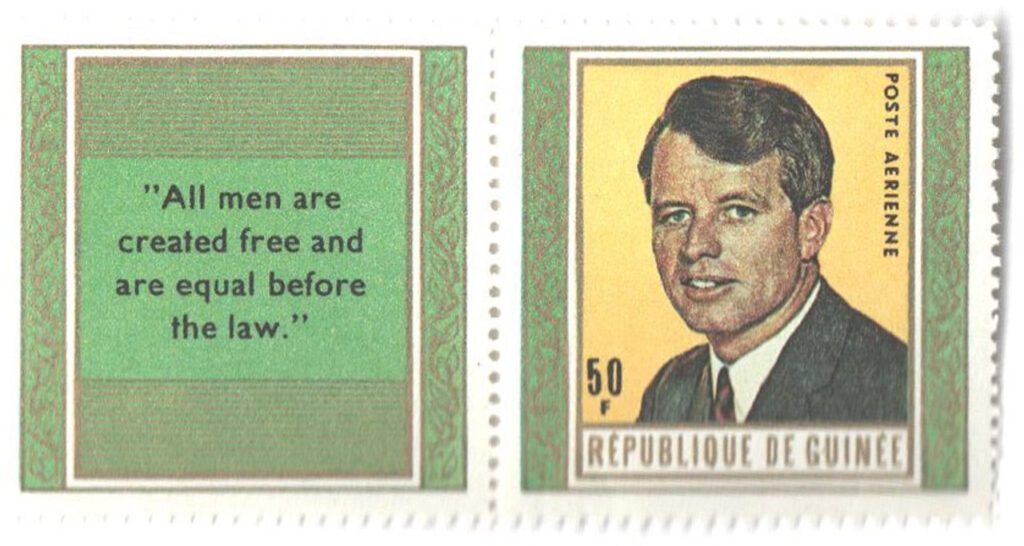
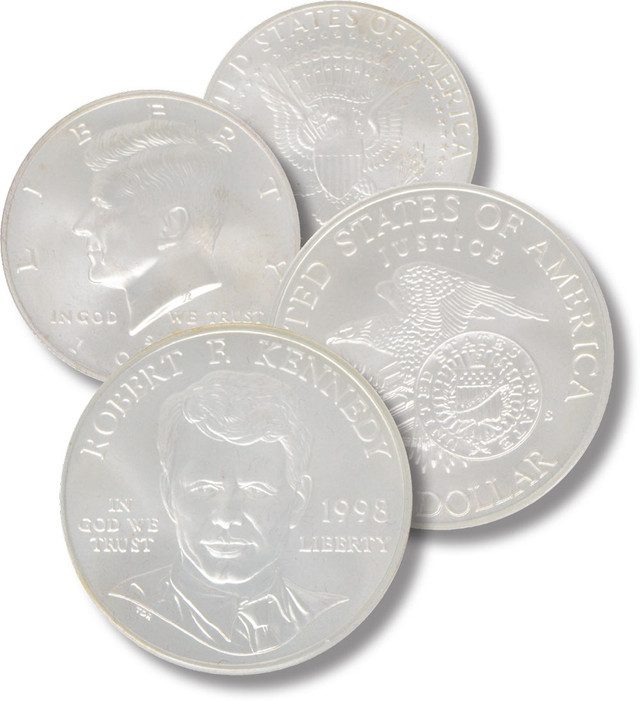
There is so much more to be said about Bobby Kennedy and while it is impossible to include all or even most of what is essential to his life, many important highlights were omitted. The article was watered down to a compressed, less than a reader’s digest condensation. I guess someone had a big weekend planned.
Very ver good, really excellent!
I was working as an Air Force Medic in the emergency room at Malmstrom Air Force Base in Montana, when this news came over the radio. It was such a tragedy, especially, having just lived through the assassination of Martin Luther King a few weeks earlier in Memphis and being in high school when JFK was murdered. It was a violent time in our ever changing world.
wow RFK was a Stamp Collector just like me (first day cover stamps collector) excellent hobby.
Bobby Kennedy did collect stamps. In the 1930’s President Franklin Roosevelt gave Bobby stamps. Young Kennedy wrote a thank you letter& said he wanted to see FDRs collection because his mother said it was very nice
If he had lived, Robert Kennedy probably would have been elected President. He was compassionate and had many good ideas. It is a shame that he was not able to fulfill his full potential, and our country is poorer because of what happened.